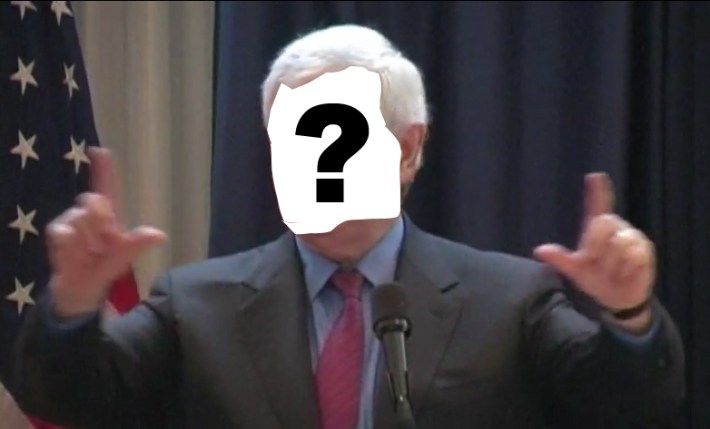Match the quotation to its Speaker (hint, hint!):
"Let's go ahead and be really bold, and go head-to-head with the Chinese in developing and implementing maglev trains that move at 280 to 300, 320 miles an hour. [...] You cannot talk about American national security in the long run without a fundamental redevelopment of this country economically… And you cannot talk about a competitive American economy without a dramatically more robust and more modern infrastructure.”
Is it Obama, stumping for reelection? Not this time. What about Mitt Romney, who recently said he’s okay with borrowing money if it’s for infrastructure that provides a revenue stream? Getting closer.
No, these words belong to one Newton Leroy Gingrich, and they were delivered at a June 2009 event co-hosted by Building America’s Future and the National Governors Association. That's right: Mr. Balanced Budget Amendment, the Deficit Hawk's Deficit Hawk, wants to build maglev trains, per-mile one of the most expensive modes ever devised.
His speech outlined “8 Principles for a 21st Century Infrastructure System," and featured: rewriting the budget act to allow for multi-year capital investing (number one), involving and incentivizing the private sector (number four), and an “energy infrastructure investment comparable to transportation investment” (number eight).
This last point, no doubt, refers to the six-word mantra that served as the title of Gingrich's 2007 book, Drill Here, Drill Now, Pay Less. He also wrote a book – that same year! – called A Contract with the Earth about environmental stewardship. If nothing else, you have to admire his chutzpah. (That, and his skill at delivering focus group-tested talking points that advance the agenda of his patrons in the fossil fuel industry.)
The Republican presidential field’s resident idea man and self-styled “organizer of the pro-civilization activists” has a rather extensive public record when it comes to his stance on transportation investment, one that dates back to his years as Speaker of the House in the 1990s. Not that he's ever had much to say about urban transit or other transportation issues that touch the daily lives of city dwellers.
- In 1995, Newt was already a champion of Intelligent Transportation Systems, and had high hopes for the technology behind EZ-Pass and similar programs. However, he had higher hopes for a system that could be handed over almost entirely to credit card companies instead of tolling authorities.
- In 1998, in his book, Lessons Learned the Hard Way, Newt said that he opposed a proposal by George Bush (41) to increase the gas tax after just two phone calls: one to his mother-in-law, and one to his eldest daughter. (That smells like “sample bias” to this urban planner.) Interestingly, principle number five was that transportation infrastructure should be financed by user fees rather than tax increases, so which does he consider the gas tax to be?
- In 2007, in his book, Real Change, Newt wrote: “The US has three corridors that are very conducive to … high-speed train investment,” meaning Boston-Washington, Miami-Tampa/Jacksonville via Orlando, and San Diego-San Francisco. Of course, the system must be “privately built, run efficiently, and capable of earning its own way… a railroad system that works for us, and not for the Amtrak bureaucracy and their unions." (In his 2009 speech, he counted high-speed rail among "very large megaprojects that rouse the nation.")
For all his published prose, Newt's voting record is rather unenlightening, as it seems he missed more than half of all transportation-related votes during his last six years in office.






